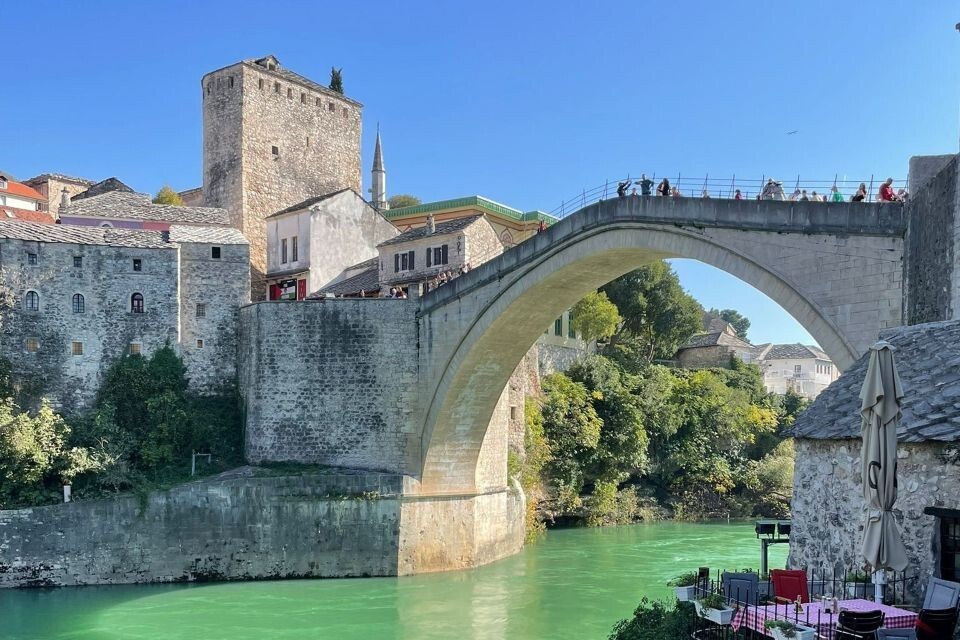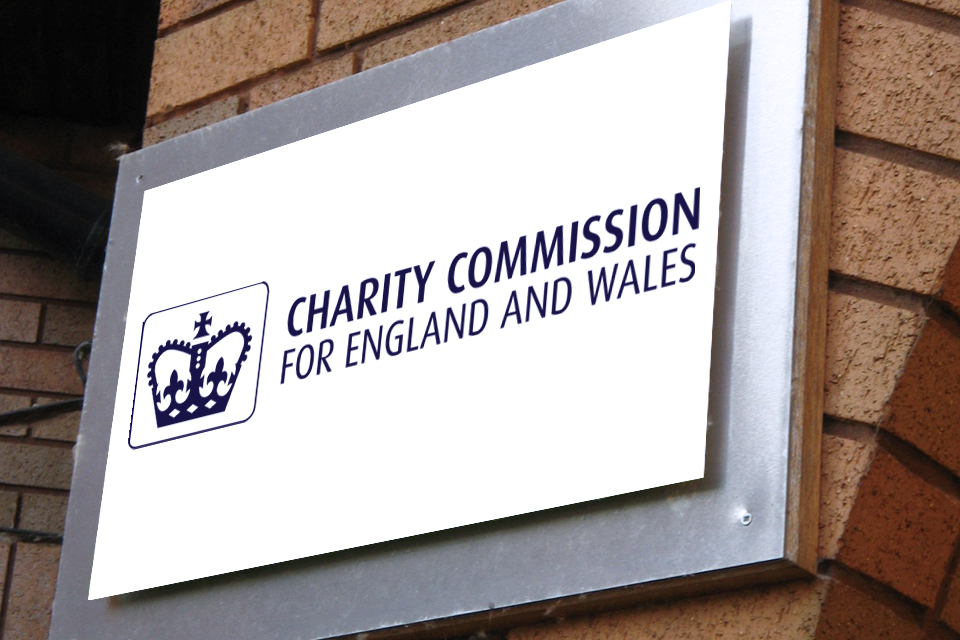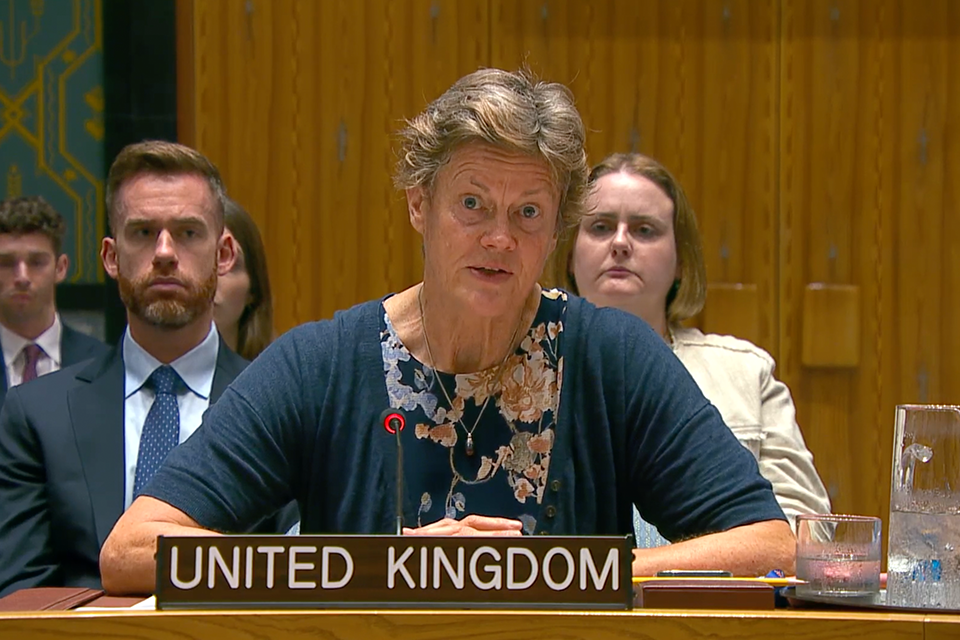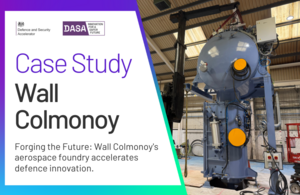Introduction
A stable and less divided Bosnia and Herzegovina (BiH) is a top priority of the UK government. Recent scoping and engagement across the country has identified that ethnic tensions remain high, often localised and in some instances, communities are severely divided.
Mostar, the largest city in the Herzegovina region, is a stark example of this division with communities living in de facto segregation. For this reason, the UK has invested in peace and reconciliation efforts in Mostar – including a flagship project to support the rejuvenation of public spaces between 2022 and 2024.
The project achieved significant engagement from the public, and ‘increased interpersonal connections through establishing a participatory process to identify which and how public spaces should be rejuvenated. (This was the most cited reason for why citizens believed that relations between citizens was better than they were a year ago in the end of line survey).
Building on this success, we are now commissioning for a short-term follow-on project (until 31 March 2026) that uses public spaces to bring individuals together, across ethnic divisions through activities that directly support peaceful interethnic relation, community cohesion and societal resilience.
Activities should deliver for Mostar but can additionally work with neighbouring areas (for example Stolac) if it supports the project objective. Proposals must focus on one or several of the following goals and clearly identify which ones they are seeking to address
- using sport as a method to bring people, including women and girls, together from all backgrounds, particularly those more resistant to inter-ethnic engagement, and promote common values and undermine divisive narratives
- using music as a method to bring people together from all backgrounds, particularly those more resistant to inter-ethnic engagement, and promote common values and undermine divisive narratives
- addressing and countering inter-ethnic tensions in Mostar related to football hooliganism
- enabling inter-religious cooperation in promoting interfaith and interethnic cooperation and collaboration to reduce tensions and divided living
Detailed information
Only not-for-profit organisations are invited to bid. This includes international organisations (IOs), international non-governmental organisations (INGOs) and local civil society organisations (CSOs), who can also apply in a consortium of CSOs.
Successful projects should have sustainable outcomes and should clearly identify their intended impact. They may also build on projects by other organisations, complementing their efforts. All bids should make clear how they complement existing activities in Mostar supported by other donors and international partners.
The minimum indicative funding for projects is £120,000 and maximum £250,000. This may be in addition to co-funding and self-funding contributions. Co-funded projects will be regarded favourably.
Projects must be completed by the 31 March 2026. Where appropriate, bidders are encouraged to describe how their project could be further scaled up if additional funding became available.
All project management, project administration, and overhead costs should be detailed and not to exceed 12% of total budget. Budgeting overheads as a flat percentage is not supported, and any such costs should be fully detailed in the budget.
We are unable to fund academic courses or English language courses. The purchase of IT and other equipment over £500 per item will require prior approval of the embassy, but such procurement should not constitute a significant part of the overall project budget.
The British Embassy Sarajevo will carry out due diligence of potential grantees, including seeking references, as part of the selection process.
Bidding is competitive and only selected project/s will receive funding. The embassy reserves the right to accept or reject any or all bids without incurring any obligation to inform the affected applicant(s) of the grounds of such acceptance or rejection. Due to the volume of bids expected we will not be able to provide feedback on unsuccessful bids.
Bidding process
Bidders should fill in a standard project proposal form (Annex A) and include a breakdown of project costs in the activity-based budget (ABB) (Annex B).
Budgets must be Activity Based Budgets (ABB), all costs should be indicative, in GBP. Successful implementers should be able to receive project funding in either BAM or GBP.
Successful bids must have a clear Gender Equality and Social Inclusion (GESI) objective explicit in the project documentation and an explanation of a positive impact of the project on advancing gender equality and social inclusion.
All projects or activities must align with the Paris Agreement on Climate Change and assess climate and environmental impact and risks, taking steps to ensure that no environmental harm is done and, where relevant, support adaptation.
An information session will be held at at 10am (BiH time) on 23 July 2025. Email [email protected] to receive the meeting invitation.
Proposals should be emailed to [email protected] by 5pm (BiH time) on 6 August 2025. Include the name of the bidder in the email subject line.
Successful bids are expected to start on 1 September 2025 and conclude on 31 March 2026. Successful shortlisted bidders will be informed by mid-August.
Evaluation criteria
- the proposal should clearly state which of the listed goals it is seeking to address and how it will measure whether the activity is contributing to the goal
- quality of project how well defined and relevant the outcome is and how outputs will deliver this change; ability to leverage bigger funding would be an advantage
- value for money the value of the expected project outcomes, the level of funding requested and institutional contribution
- local knowledge and previous experience evidence of the project team’s understanding the context, socio-political challenges, previous experience of implementing similar activities/related fields with evidenced results, ability to manage and deliver a successful project. Evidence of how the project will learn from tested experiences, respond to opportunities and changing political circumstances
- fluent understanding of the local language
- gender-sensitive approach
- alignment with the Paris Agreement on Climate Change
- demonstrated experience of working with conflict affected communities
- ability for the project to engage and leverage relationships with all societal tracks (including but not limited to local authorities, civil society actors, academia, law enforcement agencies, the private sector and media)
Background information
The UK’s commitment
The successful project will be funded via British Embassy Sarajevo, from the Western Balkans Freedom and Resilience Programme (FRP). The FRP has 2 outcomes.
- improved reconciliation and peacebuilding outcomes for conflict-affected communities, with a focus on building connections across conflict divides and strengthening access to transitional justice processes
- empowerment of women and girls through tackling CRSV, GBV and promoting women’s meaningful participation in decision-making processes
The embassy in BiH commits to delivering for these outcomes by supporting initiatives which put BiH on a positive pathway to achieve long term and inclusive peace for all citizens. It acknowledges this can only be achieved by locally owned activities that ultimately contribute to conflict prevention, reconciliation and peacebuilding.
Thematic background
The demographic of BiH was fundamentally changed by the war in the 1990s, with many communities now ethnically homogenous. Mostar remains one of the few genuinely multi-ethnic cities.
Yet true peace and reconciliation has not been achieved, memories and traumas of the conflict endure, with deeply held engrained views of accepting a divided reality. Assessment shows the divided school system is fostering further societal division, together with external influences stoking tensions within the city.
To reverse the trend of division, group activities like football or music have an opportunity to facilitate interethnic engagement. Moreover, whilst there are activities for young people, groups engaged with are not including the hardest to reach factions. Participants in cross community activities are predominantly those who have public will for a multi-ethnic way of life, failing to reach the truly divided and problematic elements within the community.
Activities of hooligan groups can be major trigger points for destabilisation in general, but in BiH this is exacerbated by an unresolved conflict. In Mostar, the two football clubs have long had distinct ethnic links, playing into tribalism and identity politics. There is a live risk of individuals being manipulated to extend behaviour to violence and political extremism. This is then multiplied with social media through the spreading of hate speech and extremist behaviours and ideologies.
Religion is woven within ethnic divides in BiH. Despite this, religious leaders in Mostar have pioneered their own initiatives and demonstrate positive engagement both as a group and as a unifying voice with key decision makers. This has supported progress in supporting minority voices and facilitating increased dialogue across ethnicities.
Building on success
The project should build on the success of ‘Project Mostar’ which worked with local communities to rebuild public spaces and which addressed shared civic, social, and economic needs. Project sites include various open public spaces, such as Bunica and Trimuša park, as well as numerous indoor spaces, such as museums, cultural centres, puppet theatres etc.
The project contributed to integration of marginalised groups, including persons with disabilities and women and girls, into mainstream cultural and social life, breaking down barriers and normalising their participation. While evidence of cross-community engagement in cultural spaces is still emerging, the project did demonstrate other impacts such as job creation through women’s empowerment, improved work conditions in cultural institutions and care centres, and potential boosts to tourism.
The initial ‘project Mostar’ focused on providing spaces and using a participatory process to ensure increased community ownership of public spaces. This call for bids seeks to reinforce the success of the previous project by supporting activity in public spaces which facilitates interethnic interaction and understanding of shared principles.
Successful projects will have time bound and realistic outputs that focus on engaging communities across the divide through activity whilst being underpinned by a clear understanding of how activity is contributing to the relevant outcome. Implementers are required to apply conflict sensitivity to all elements of project design, implementation and monitoring and evaluation.








